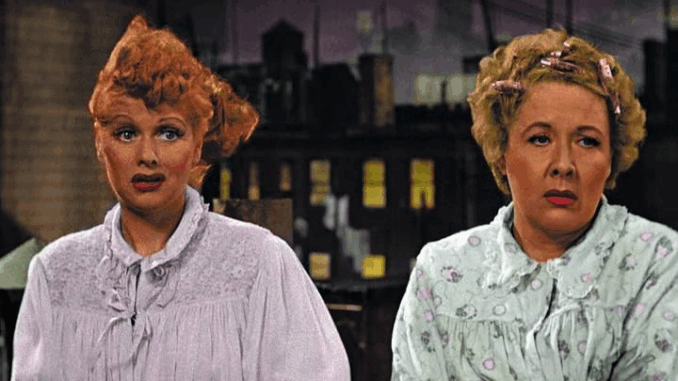
When I Love Lucy premiered its first season in 1951, it wasn’t just another sitcom — it revolutionized the television landscape and set a new standard for comedy that still resonates today. Season 1 introduced audiences to a fresh style of situational comedy, blending physical slapstick, sharp writing, and deeply relatable characters in a way that had never been seen before.
At the heart of this groundbreaking season was Lucille Ball’s iconic portrayal of Lucy Ricardo, a witty, ambitious housewife whose hilarious schemes to break into show business or improve her family’s fortunes often landed her in absurd and chaotic situations. Whether trying to keep up with Ricky’s nightclub career or navigating the challenges of married life, Lucy’s adventures were full of laughter and heart.
One of the most notable aspects of Season 1 was the show’s innovative use of a multi-camera setup filmed in front of a live studio audience. Unlike most television productions of the time, which were filmed with a single camera and edited afterwards, I Love Lucy embraced the theatrical energy of live performance. This method captured the authentic reactions of the audience and gave the series a unique immediacy and vibrancy, creating a communal viewing experience that captivated viewers at home.
Episodes such as “Lucy Does a TV Commercial” (the famous Vitameatavegamin episode) and “Job Switching” (where Lucy and Ethel try working on a chocolate assembly line) quickly became cultural landmarks. These scenes showcased Lucille Ball’s exceptional comedic timing and physical humor, which influenced generations of comedians and actors.
Season 1 didn’t just entertain; it established I Love Lucy as a cultural phenomenon, launching Lucille Ball into superstardom and laying the groundwork for the evolution of sitcoms in the decades to come. The combination of innovative production techniques, relatable characters, and timeless humor made this season a cornerstone of television history.
